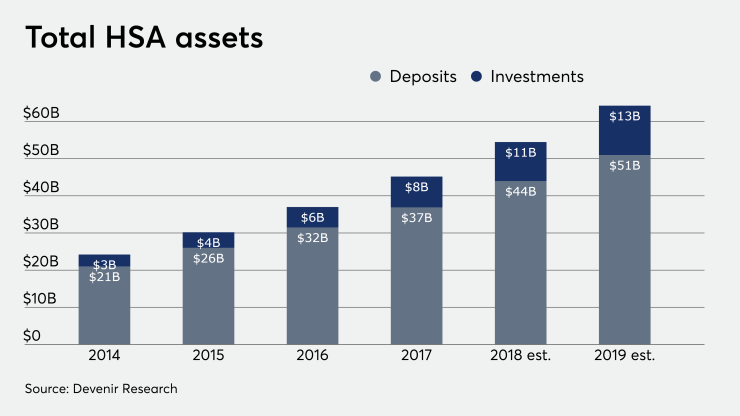Welcome to Retirement Scan, our daily roundup of retirement news your clients may be talking about.
With the cost of health care expected to rise exponentially in retirement, the HSA is becoming an increasingly valuable tool for clients to save for future medical expenses, an advisor writes in MarketWatch. An HSA can help clients stretch their savings and create a solid financial plan for retirement, he writes. "And the triple tax benefit simply can’t be ignored — contributions to an HSA are either tax-free or tax-deductible; withdrawals for qualified medical expenses are tax-free; and HSA investment earnings are tax-free in most states."
An income annuity can be a great, less costly option for seniors who want to leave a legacy to a grandchild because of the product's unique benefits, writes an expert in Kiplinger. An income annuity does not have a cash value, which will prevent the child from blowing the inheritance, the expert writes. Moreover, "[w]hen income is received, only a portion of it will typically be taxable. This is because part of the income from an annuity is considered to be a return of principal and part is considered to be earnings."
When it comes to retirement prospects, clients must keep their confidence levels in check and keep tabs on the status of achieving their financial goals, according to this article from Motley Fool. To do so, they should have a realistic estimate of their living expenses in retirement, according to the article. Those who want to estimate their monthly retirement expenses before health care need to subtract work-related expenses and mortgage payments from their take-home pay and add the cost of entertainment, estimated taxes and 5% for emergency fund.
The tax law changes affected deductions for charitable contributions, entertainment expenses and more. Here are hard-won insights for advisors as they help clients navigate the second year of filing under the new regulations.
Clients who are torn between debt payments and retirement savings need to make a number of considerations before making a decision, according to this article from The Washington Post. They need to consider their age, the amount of debt and the cost of carrying such debt, according to the article. They’re also advised to check whether their employer offers a matching contribution in their 401(k) plan.







